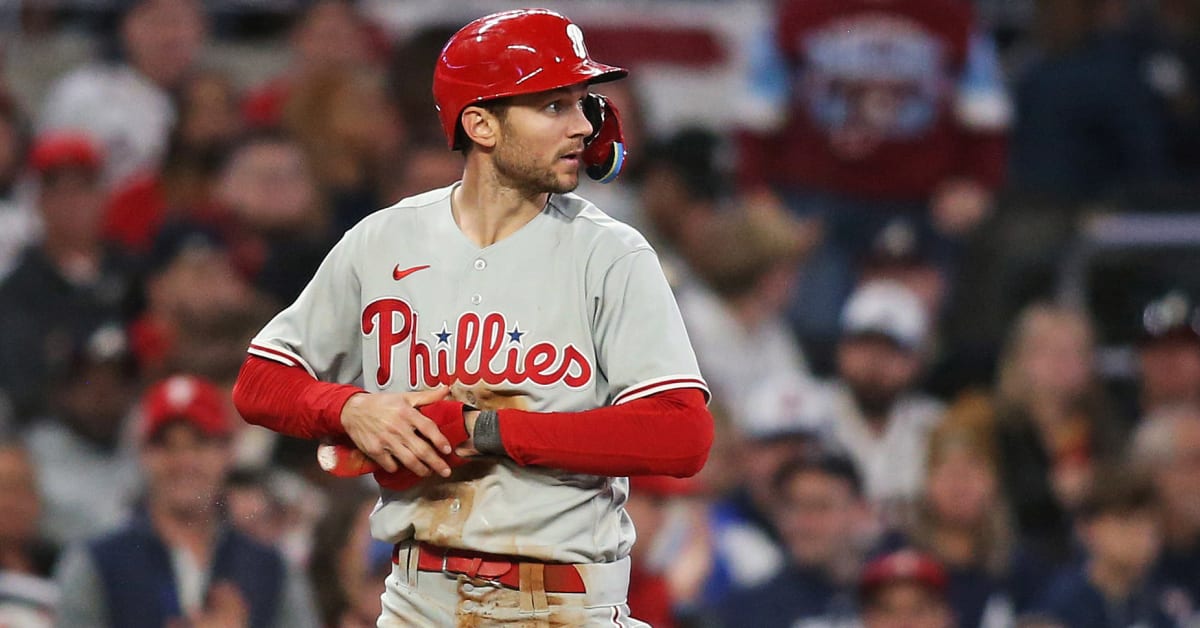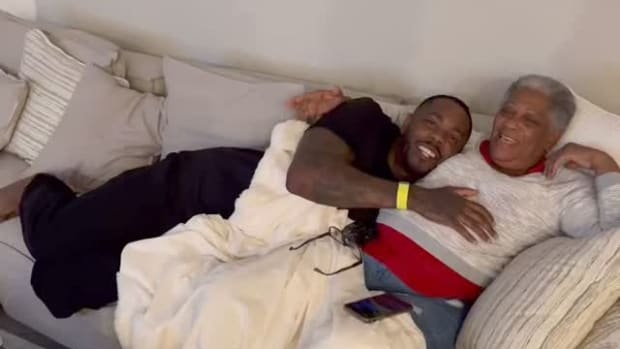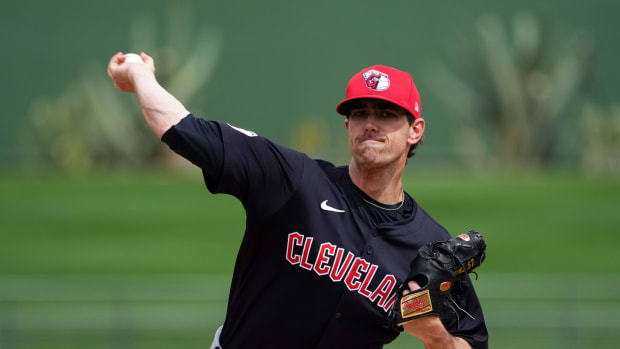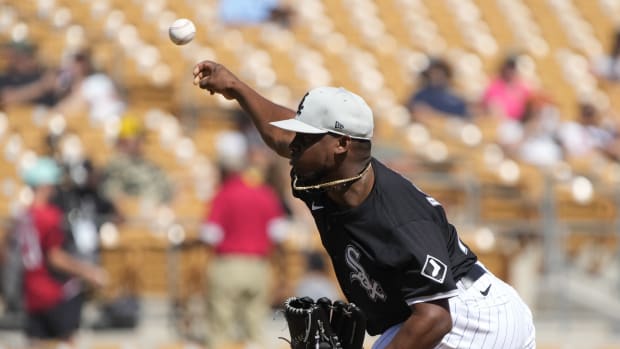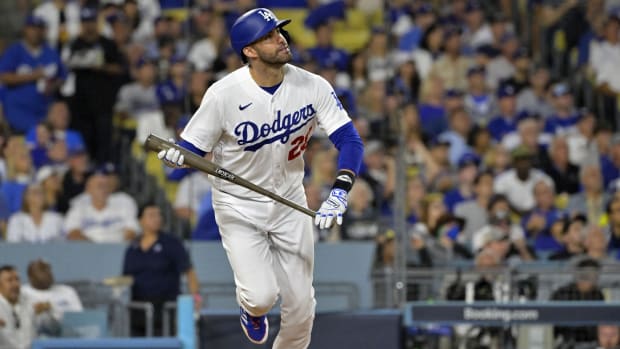After Debilitating Slump, Trea Turner Roars Back As the Star the Phillies Knew He Could Be
Two months before he was the most dynamic player on a team two wins from the National League Championship Series, Trea Turner wondered whether he would ever get another hit. He knew what was wrong, but he couldn’t fix it. “I’m tight,” he told hitting coach Kevin Long. “I’m trying too hard.”
The tightness showed up in Turner’s shoulders, and in his back, and in his limbs. Eight months after he signed an 11-year, $300 million deal to be among the faces of the Phillies, he was the 15th-feeblest hitter in the majors, and now, at the worst point of the worst season of his career, he couldn’t play shortstop, either. He was in the midst of an 0-for-5 night against the Marlins in August when he misplayed an 11th-inning ground ball that drove in a run; Miami would win in 12 innings. He trudged to the LoanDepot Park indoor batting cage, where he and Long spent an hour trying to return him to the player who’d finished 11th in National League MVP voting a year earlier.
They paused only long enough for Turner to return to the clubhouse to tell reporters: “Obviously I’m the reason why we lost that game.” Then he went back to hacking.
“I felt a little lost,” Turner, 30, says now. “Even when I’m going bad, I don’t necessarily feel lost, but I felt lost.”
They worked until midnight, then finally called it. They hoped they had found something—until 12 hours later, when he went 0-for-3.
But while Turner was lowering his OPS to .657, a producer for WIP radio in Philadelphia was tweeting his sympathy for the struggling shortstop. Jack Fritz added, “A standing O on Friday would go a long way IMO.”
The team returned to Philadelphia for the next game, and when Turner trudged to the plate in the second inning—manager Rob Thomson had dropped him to eighth in the batting order—he heard a sound he almost didn’t recognize. The Citizens Bank Park crowd was roaring.
Turner’s mother, Donna, cried. So did Long. “For the Philly fans to do that, especially here, it means a lot,” he says. That night, Turner called the gesture “pretty f------ cool.” Now he says he ties it directly to the astonishing run that followed.

Turner is hitting .455 in the MLB playoffs after a brutal first half to start the season.
Brett Davis/USA TODAY Sports
His shoulders relaxed. So did his back, and his limbs. And so, to his surprise, did his hands.
Turner has always been “a big hands guy in general,” he says, so he had been reminding himself to grip the bat loosely, but he believed he’d worked that out. “I think I thought I did it, but I didn’t actually do it,” he says. He would start out loose, and then as he drew the bat back, he’d tighten up again. But when he heard that ovation, he exhaled, and he felt that release in every part of his body.
Starting the day of the ovation, Turner hit .337 with a 1.057 OPS and nine stolen bases in 48 regular-season games. In three postseason games, those figures are .455, 1.136 and four.
“That’s the guy that we were thinking we were going to get,” says Thomson.
Turner’s recent performance is all the more remarkable considering how low he sank. By early August, he would arrive at the ballpark expecting to fail. It’s hard to do much at the plate when you walk up to your first at bat feeling like you’re already 0-for-4. O.K., he would tell himself, look fastball here. Then he would swing and realize he hadn’t even seen the pitch.
“I mean, literally, breaking balls were landing two feet in front of the plate—and he was swinging,” says Long. “That’s not Trea.”
Turner could not understand what had happened to him. “I was a little surprised, or baffled, like, How can I be this bad?” he says.
One obvious answer might be the pressure to live up to the contract, to the commitment the team and the city had made to him. Turner insists that wasn’t it. Long disagrees.
“I know that he was feeling it,” he says. “We would talk about it.” He adds, “There’s one thing trying to get a contract and there’s another thing trying to fulfill it.”
Turner believes there was an element of misfortune involved. “Even a swinging bunt or a bloop single or a line drive—I feel like this year I really haven’t gotten a lot of lucky hits,” he says. “Almost all my hits have been balls that I’ve squared up. In the past I could survive on hitting the ground ball up the middle or blooping the ball down the right field line, and if you get one of those a week or two of those a week, you feel so much better about yourself.”
He adds, “I felt like I would do things wrong and not get rewarded, and I would do things right and not get rewarded.”
But mostly, as it turns out, it was the hands. So he and Long have done one-handed drills every day since early August to keep that loose feeling. It’s working: In Game 1 of the NLDS, Turner had a single, stole two bases and made the best defensive play of the game, a flip from his knees to start an inning-ending double play and keep Atlanta scoreless. And if he ever forgets to relax, he can look up at the stands at Citizens Bank Park. The fans are cheering for him again these days. But this time it’s because he’s the star they—and he—knew he could be.






























